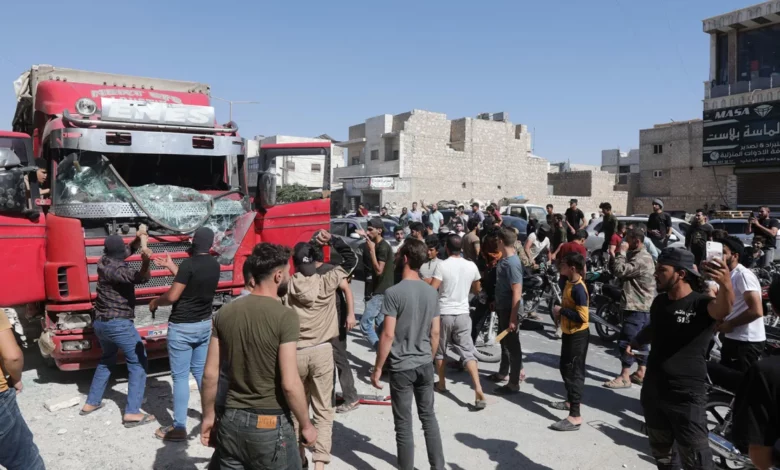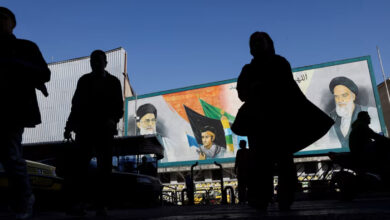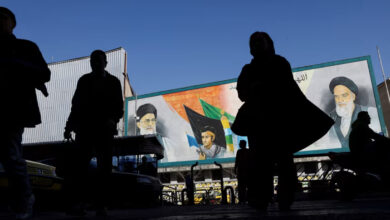
According to Turkish state news agency Anadolu, a Syrian man was arrested on allegations that he sexually abused his seven-year-old female cousin, who is also Syrian, in a public bathroom at a market.
Reports of the purported abuse quickly spread across social media, prompting outraged local residents to riot — setting fire to cars and Syrian-run businesses in the central Anatolian city.
“An investigation was immediately launched on the issue. However, later our citizens gathered in this region, acted illegally in an attitude that does not suit our human values, and damaged houses, workplaces, and vehicles belonging to Syrian nationals,” Turkish Interior Minister Ali Yerlikaya said. He said that dozens of people were detained, and the crowd was only dispersed in the early morning hours.
The local governor of Kayseri called on people “to act calmly, with moderation and common sense.”
Turkish President Recep Tayyip Erdogan blamed opposition parties, some of which have taken a hard line on removing the estimated 3.6 million Syrians from the country, for stoking “hatred politics.”
Erdogan himself has pledged to create the conditions for large numbers of Syrians to voluntarily return to Syria.
“Xenophobia and hatred towards refugees in our country should not be ignited because this does not give any positive results,” he said in a speech on Monday.
The riots in Kayseri also sparked backlash inside Syria. Video from the town of Atareb, which is currently under the control of Turkish troops, showed people chanting against the Turkish army’s presence and throwing things at an armored vehicle. Another video showed the chaotic situation that followed, with plumes of smoke and the sound of gunshots. A local resident told CNN troops had used a smoke grenade and fired shots into the air to disperse the crowd. CNN cannot independently verify the resident’s account.
In another town, Ghazawiah, also in northwest Syria, protesters were seen pulling the Turkish flag town from a military site. A local resident there confirmed to CNN that the incident took place.
At the “Bab al-Salama” border crossing with Turkey, the Turkish flag was removed, burned and replaced with a Free Syrian Army flag, according to a local resident and images circulating on social media.
Several internet providers in northern Syria appeared to be disconnected late Monday. Only satellite internet was still working.
The largest umbrella group representing the Syrian opposition, the “National Coalition for Syrian Revolution and Opposition Forces” released a statement urging Syrians on both sides of the border to “exercise self-restraint.”
“The sole beneficiaries of this chaos, violations, and disorder are the regime and terrorist organizations,” the statement read.
Yerlikaya blamed bots and provocateurs for sowing discord on social media. He said that more than a third of accounts sharing content about the events in Kayseri on X were bots and that 10 accounts had been referred to prosecutors.
“We will not tolerate those who threaten the peace and security of our country, make provocative posts, or engage in hate speech,” he wrote on X.
Turkey hosts more Syrian refugees than any other country, but Turkey has often struggled to integrate Syrian refugees fully into society. That, combined with a struggling economy, has turned Syrians into a political lightning rod in Turkey. Many Syrians accuse Turks of racist treatment. Countless Syrian children are not in schools because of a requirement that Syrians remain in the districts they were registered in originally — even after events such as last year’s deadly earthquake in southern Turkey forced many of them to relocate.
All of this comes just days after Erdogan said he was open to meeting with Syrian President Bashar al-Assad to restore ties between the two countries — though last year Assad made clear the meeting could not take place so long as Turkish troops remained in Syria. Assad and Erdogan were once close and even vacationed together, but Erdogan eventually backed the Free Syrian Army that sought to oust Assad from power in Syria’s civil war.




